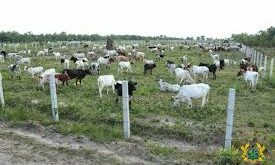The author, Samuel Shay, is the President of GTS and an international business expert
The Gulf Technology Systems (GTS), a leading Israeli firm, is to launch a new carbon emission program with economic growth plan to secure communities involvement interest in Africa, south America and Asia.
Moringa trees, also known as the “miracle tree” or the “tree of life,” are attracting growing attention for their potential to reduce carbon emissions and provide economic benefits for communities around the world. These fast-growing trees are native to parts of Africa and Asia and have been used for their medicinal and nutritional properties for thousands of years. In recent years, however, the potential of Moringa trees as a tool in the fight against climate change and as a source of income and economic growth has come to the forefront.
Carbon Emissions Reduction
One of the most significant ways that Moringa trees can help reduce carbon emissions is through carbon sequestration. Carbon sequestration refers to the process of removing carbon dioxide from the atmosphere and storing it in a long-term form, such as in vegetation and soil. When Moringa trees grow, they absorb carbon dioxide from the atmosphere and store it in their biomass. When the trees are harvested and processed, the carbon stored within them can be captured and stored, thereby reducing the amount of carbon dioxide in the atmosphere.
Moringa trees are especially effective at combating climate change because they grow quickly, with some species capable of growing up to 10 meters in just one year. This means that they can absorb large amounts of carbon dioxide in a short amount of time, making them an effective tool in the fight against climate change. Additionally, Moringa trees are drought-resistant and can grow in harsh conditions, making them a viable option for agriculture in areas with limited resources.
Economic Potential
In addition to their ability to reduce carbon emissions, Moringa trees also have the potential to provide substantial economic benefits for communities. The tree has multiple uses, and its parts (leaves, seeds, and seed oil) can be used for a variety of purposes, such as food, cosmetics, and animal feed. The leaves of the tree are rich in nutrients, including vitamins A and C, iron, and calcium, making them a valuable food source. The seed oil from Moringa trees is high in monounsaturated fatty acids and is used in the manufacture of cosmetics and personal care products. The seeds themselves are a source of high-quality protein and can be processed into a powder for use as a dietary supplement.
The Moringa tree is also considered a cash crop, as its various parts can be sold for a profit. This can be especially beneficial for communities in developing countries, where the tree is native, as it provides a source of income and can help improve the local economy. Additionally, the fast-growing nature of the Moringa tree means that it can be harvested multiple times a year, providing a steady source of income for farmers.
Industrial Usage
The industrial usage of Moringa plants is also substantial, as the tree has numerous applications in various industries. Moringa oil is extracted from the seeds of the tree and is used in the manufacture of cosmetics and personal care products, such as lotions, soaps, and shampoos. The oil is also used in the manufacture of biofuels, as it is a renewable energy source that is sustainable and environmentally friendly.
The leaves of the Moringa tree are also a valuable resource and can be processed into a powder for use as a dietary supplement. The powder is rich in nutrients and can be added to smoothies, soups, and other foods, providing a convenient way for people to incorporate more nutrients into their diets. The leaves are also used as animal feed, as they are high in protein and other essential nutrients.
Community Involvement
The development of Moringa fields for economic growth is a process that involves the entire community. Farmers can play a critical role.
The development of Moringa fields for economic growth is a process that involves the entire community. Farmers can play a critical role in the growth and success of Moringa fields by providing land, labor, and resources. Community members can also support the development of Moringa fields by purchasing Moringa products, spreading awareness of the benefits of the tree, and advocating for its use in local and national government programs.
In order for Moringa fields to be economically successful, they must be well-managed and well-maintained. This includes proper planting and cultivation techniques, regular harvesting, and the processing and marketing of Moringa products. It is important to ensure that Moringa products are of high quality and meet the standards of consumers, as this will help to build trust in the products and increase demand.
The development of Moringa fields can also provide opportunities for community members to develop new skills and improve their existing skills. For example, farmers can learn about modern planting and harvesting techniques, and individuals can learn about the processing and marketing of Moringa products. This can help to create new jobs and improve the overall economic well-being of the community.
In conclusion, the use of Moringa trees has the potential to play a significant role in reducing carbon emissions and providing economic benefits for communities around the world. The fast-growing nature of the tree, its numerous uses, and its ability to thrive in harsh conditions make it an ideal tool for combating climate change and improving the lives of people in developing countries. The development of Moringa fields requires the involvement of the entire community, and by working together, communities can ensure the success and growth of Moringa fields for years to come.
 Home Of Ghana News Ghana News, Entertainment And More
Home Of Ghana News Ghana News, Entertainment And More





